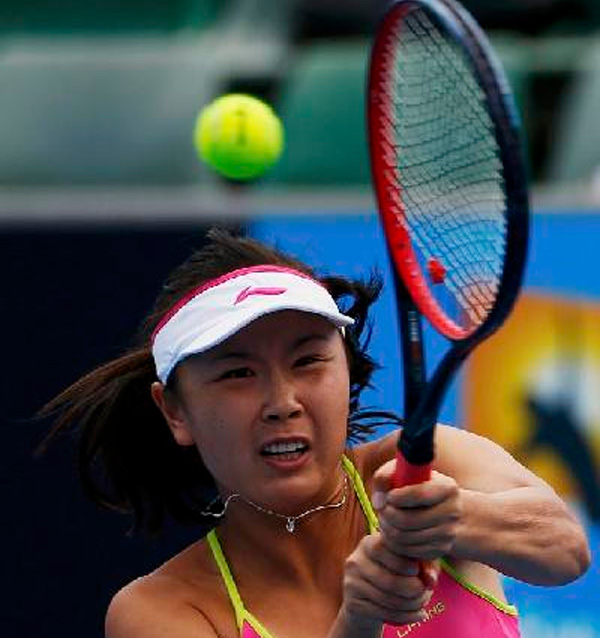 |
|
Peng Shuai of China hits a return to Yaroslava Shvedova of Kazakhstan during their women's singles third round match at the Australian Open 2015 tennis tournament in Melbourne January 23, 2015. [Photo/Agencies] |
With Li Na in retirement and not defending her title at the Australian Open, there are far fewer Chinese flags and fans with painted faces in the stands at Melbourne Park.
So much so that when Peng Shuai, now China's top-ranked player, was beating Magdalena Rybarikova in their second-round match, there was just one fan shouting encouragement in Mandarin with a solitary Chinese flag.
On Friday, Peng, seeded No 21, overcame Yaroslava Shvedova of Kazakhstan 7-6 (7), 6-3 in a third-round match.
Contrast that scene with a stadium in the Australian capital last Sunday, where thousands of red-shirted Chinese supporters cheered on their national soccer team as it defeated DPR Korea in a group match at the Asian Cup.
With Li transitioning from tennis star to soon-to-be-mother, her departure from the sport raises an interesting question in China: Can tennis keep its nascent fan base and continue to grow in the country without its global superstar?
"It's literally the billion-dollar question. Ultimately, no one knows," said Richard Heaselgrave, the commercial director for Tennis Australia, which has a considerable stake in the answer as host of the Australian Open, the self-described Grand Slam of Asia-Pacific.
There's no doubting that tennis interest has grown immensely in China due to Li's success. According to the WTA, a Chinese television audience of 116 million watched her become the first Asian player to win a major at the French Open in 2011.
Adding the Australian Open title last year cemented her status as one of China's top celebrities-she now has more than 23 million followers on Weibo, China's Twitter equivalent, more than almost all other athletes.
Sensing a golden opportunity, the WTA jumped on Li's success to expand aggressively in Asia, with a record seven tournaments in China this year, second only to the US.
Now that China's biggest star is no longer playing, though, some believe this rapid growth might have been premature.
Zhang Bendou, the tennis writer for China's Titan Sports, said the crowds were visibly thinner at the Shenzhen Open tournament earlier this month without Li there to defend her title from the year before.
"It's embarrassing to see the pictures," he said. "If the tournaments cannot attract enough sponsors and spectators and media interest, (China) will lose them eventually. I think they are in danger, some of them."
Part of the problem is that because tennis is relatively new to the country, Chinese fans typically only pay attention to the big-name stars and local players, Zhang said.
This partly explains why the men's tour has been more cautious to expand in China-there are no bankable Chinese men's players yet. Only one made the main draw at the Australian Open-Zhang Ze, who lost in the first round to Australian veteran Lleyton Hewitt.
The Chinese Tennis Association, meanwhile, is busy trying to find the next homegrown star.
There are now 11 female players ranked in the top 200, led by Peng, the recent US Open semifinalist, at No 22. But the player Chinese Fed Cup captain Wang Peng is most excited about is 17-year-old Xu Shilin, No 2 in the junior rankings, who goes by the English name Coco.
The top seed in the girls draw at the Australian Open, Xu has the potential to be the next Li Na, Peng said.